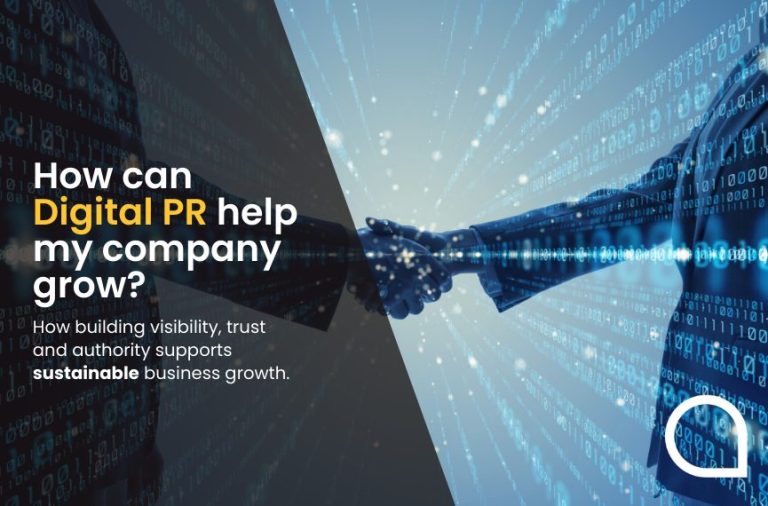
How can digital PR help my company grow?
Struggling to unlock the full potential of your business and kickstart growth? Public Relations (PR) could be the key. Often used to build a positive
Digital marketing is a multi-layered art that includes many different channels and approaches. A good digital marketing campaign should aim to combine a selection of these channels thoughtfully and consider how one route to your customer’s attention can be complemented by another.
Although the ideal goal is always to yield organic conversions, won through hard work and the quality of your content, PPC in digital marketing has its place and has a useful role to play. Combined with other marketing channels, PPC has the potential to support any campaign effectively.
PPC stands for ‘pay-per-click’, and it means a form of advertising where you do just that: pay for every time a user clicks your advert.
PPC is most commonly known and utilised in the form of paid search ads. These are the results at the “top” of SERPs shown on engines like Google when a term is searched. We say “top” because PPC ads are always bookending the true search result order, and the top organic results are still positioned beneath PPC results.
PPC in digital marketing can also take the form of banner ads, retargeting, and affiliate marketing.
It’s quite easy to form the opinion that PPC wouldn’t work on the internet these days, with savvy searchers able to differentiate between a search result ‘won’ by being useful and high-quality, and a PPC ad enjoying a paid-for spot. However, this is not the case.
PPC ads clicks account for nearly half of page visits, and search advertising has generated hundreds of billions in revenue for companies like Alphabet. Surely so many companies wouldn’t sink money into something that doesn’t represent good ROI for them?
PPC is a method of advertising. SEO is more an art and a discipline that aims to make your online presence in relation to search engines more profitable and successful.
Whereas PPC search ads ensure a visible spot on SERPs, good SEO practices will see your results organically ranking well on the same pages, enjoying spots that won’t fall away once you stop the campaign.
In some ways, the two might be seen as opposing forces, but that doesn’t necessarily have to be the case and both can coexist within the same marketing campaign. In fact, using both side-by-side is arguably the best way to get the most from your digital marketing. Whilst your SEO scoops up long-tail keywords and the more sideways routes in which your audience might find you, PPC ads can help catch the targeted, specific searchers who need you.
If your budget allows for both, then both is certainly a very good answer!
However, if you’re looking to make a definitive choice between both, then there are pros and cons to each and areas in which one may shine and another might disappoint.
PPC is quick, easy, and relatively straightforward to measure. If you’re paying for a lot of clicks but no conversions, then clearly something needs to change. Its ROI (or lack thereof) is plain to see.
Additionally, your PPC ads can be ensured to land in front of people searching your specified terms and keywords. You may be competing with other ads, but that competition in the context of ad space is somewhat limited.
However, being a paid-for service, PPC is a kind of borrowed power. If you’re using PPC ads but otherwise have little-to-no online presence, there’s nothing to fall back on when the PPC campaign ends.
Good SEO is an asset which is slower to build and requires some technical knowledge to really understand and exploit properly. It’s a much longer game than something like PPC, but the effects are also longer lasting and arguably richer.
Being amongst the highest ranking organic search results bestows not only an advantageous position—more than a quarter of people click the top result in Google, after all—but it also tells people that you’re a source of trustworthy advice, good knowledge, satisfying customer service, expert knowledge…the list goes on.
In short, it tells people you deserve that spot, and they should find out why.
That having been said, bad SEO is all too easy to create, which can harm your business rather than help it. Copying other results and trying to ‘stuff’ your keywords will see Google punishing you with poor ranking, perhaps even becoming invisible altogether in the SERPs.
With this in mind, SEO demands originality, patience, and a genuine aim to provide high-quality, helpful, useful content for your audience. Whether that’s informative blog posts and articles or a straightforward shopping experience, it needs to help the human, not the machine.
PPC in digital marketing can find a niche with virtually any company looking to raise its profile online. However, certain businesses may profit more than others, particularly those who offer a service in a competitive sector or a specific geographic location.
For instance, a window cleaner offering their services only in and around Liverpool will benefit from targeting people who specify their search for window cleaners with ‘in Liverpool’.
Additionally, PPC is a valuable option for businesses that benefit from each and every new customer due to the opportunity for long-term value, such as utility and media providers who will sign customers up for 18-24 months on a contract.
Examples of when you should use PPC
PPC is effective when used in situations such as:
At Aqueous Digital, we understand both PPC and SEO. They’re both tools we’ve long mastered and can offer as part of a comprehensive, profitable marketing plan that sees your strongest assets as a business put forwards. We can also take special care to target your desired location, building strong SEO in Liverpool, London, Birmingham, or anywhere else.
To find out more about our expert digital marketing services, contact us today.
How to conduct a thorough digital marketing audit of your website
Why digital marketing is important to business owners
Digital marketing trends to get ahead of the curve
Short-form vs. long-form content: Which is better for your website?
Digital marketing channels: Which one should you choose?
Content Optimisation: How to improve existing content on your website
How AI is becoming more prominent in digital marketing
How to create a results-driven digital marketing campaign
SEO for YouTube: How to optimise YouTube videos for search
How to boost your website’s domain authority
What is Evergreen Content and why does it matter for SEO?
Why we build backlinks to your website
How to develop a content strategy for SEO
Content is King. What is content marketing?
Creating great content: How to write for SEO
How digital marketing has changed over the years
How video content can elevate your website
Top 20 Facts about Manchester You Never Knew
Aqueous Digital’s Ultimate Guide to the cost of SEO in the UK
Aqueous Digital’s Guide to the Top 501 SEO and Digital Marketing Terms
How video content can elevate your business

Struggling to unlock the full potential of your business and kickstart growth? Public Relations (PR) could be the key. Often used to build a positive
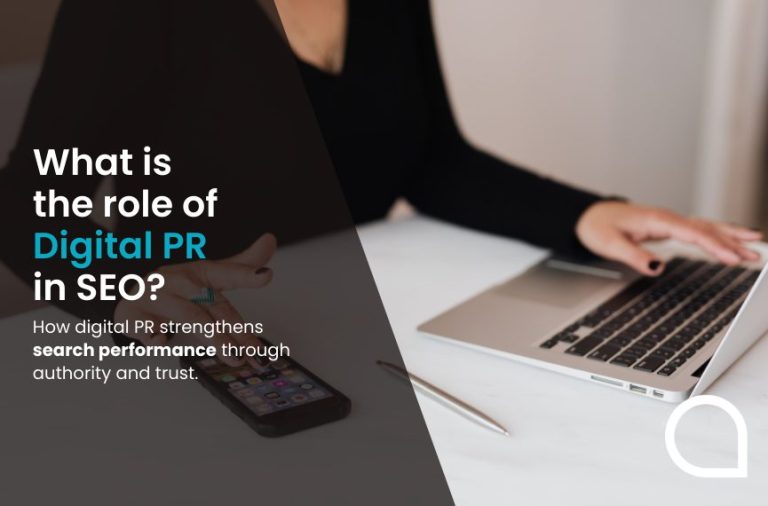
Weighing up whether your business should invest in marketing or public relations (PR)? As seasoned digital PR and marketing professionals, the expert team at Aqueous
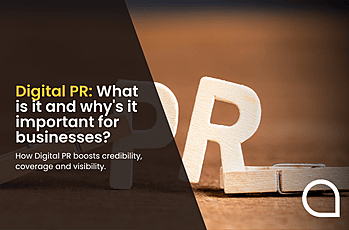
Digital public relations (better known as just digital PR) is quickly becoming an essential instrument in the modern marketers’ toolkit. As Google’s algorithms evolve and

There’s something about machine-written content that just doesn’t sit right with us. And it’s not just the written word either. Take Coca Cola’s latest Christmas
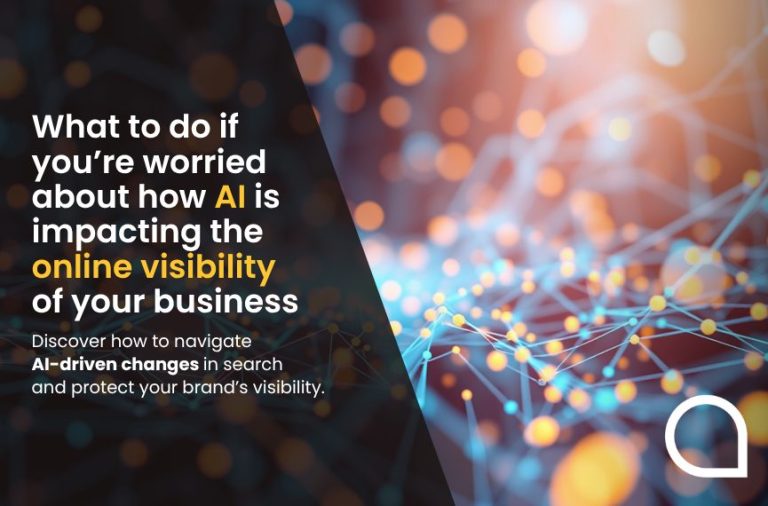
The way people find information online is evolving, and quickly. Artificial intelligence (AI), whether that’s applied generatively through tools like ChatGPT or in response to
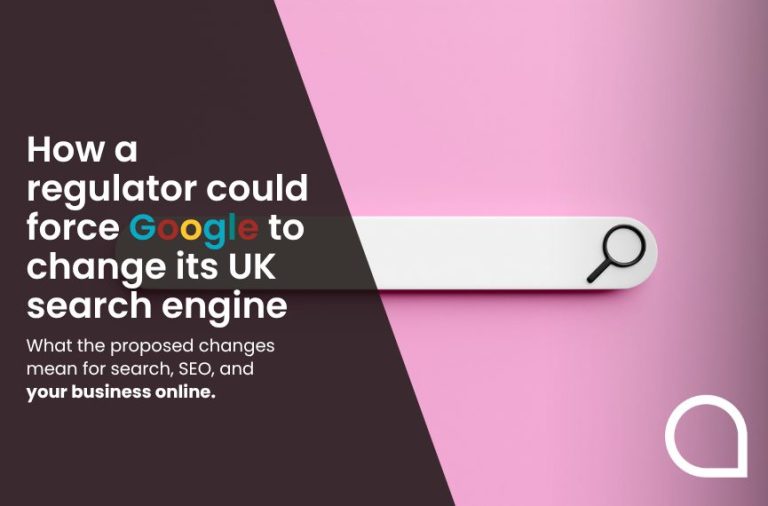
On October 10 2025, the UK’s Competition and Markets Authority (CMA) announced that Google had been granted strategic market status (SMS) in search services. Why